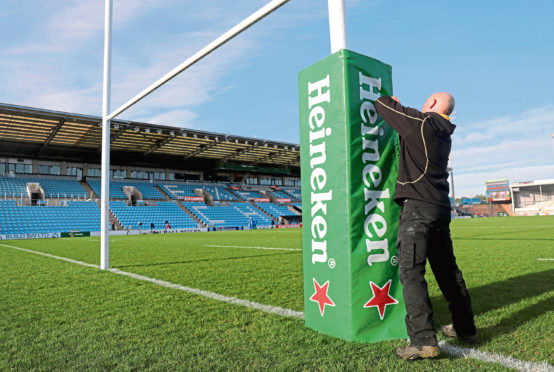Here comes the new boss, same as the old boss, a philosopher from Chiswick once wrote. And it seems that’s where we are in rugby’s much-trumpeted “re-set”.
The coronavirus has given us many cliches, enthusiastically used in these columns. “Unprecedented times” got into my first column on the virus, “the new normal” has made several appearances off the bench.
Reality Bites was another – as well as a movie in which Winona Ryder looks particularly appealing – but that one works both ways. It was supposed to apply to those who wanted to hang on to the status quo, but instead reality is chomping away merrily at those of us who imagined a new structure in rugby.
At the outset of the the game’s lockdown, it seemed as if the rugby world (as opposed to World Rugby, which is an entirely different thing) was about to sort itself out at last.
We’d tidy up the laws (again). We’d stop paying outrageous salaries to middling-to-mediocre players. Unions who should be a money machine would stop operating on the fringes of solvency (I’m thinking the RFU here, an organisation so rich in resources that it should never be taking a loss as it did in 2019).
We’d also get all sectors of the global game operating towards the same ends – a structure that worked for the Northern Hemisphere, where the overwhelming bulk of the money is, and the Southern, where the majority of the playing talent is, for mutual benefit.
Well, so much for that. First salaries – most unions and clubs have agreed pay cuts to cope with the revenue losses of five months of lockdown. Players have largely accepted this as a fait accompli.
But there’s every indication that the unions and clubs expect these cuts to be permanent, even if the professional game starts leaping and bounding again in the autumn and beyond. The “new normal”, we’re told.
Few have been as brazen about this as the English Premiership clubs (few usually are). But the players there, not unreasonably, are saying that everything rights itself, why shouldn’t pay return to previous levels?
We have the usual argument developing here. Players are being greedy, say the owners. The owners are pulling a fast one, say the players. We didn’t set these pay levels, you did, and why should we take cuts – and deny the guys coming after us the benefits we’ve enjoyed – just because you miscalculated so badly?
In addition, we’re about to enter an elongated season where to bolster revenues the players are going to be called on to play significantly more, when every study on welfare insists it should be less. You’re asking this of us and expecting us to take a pay cut?
You probably detect my sympathies are with the players here. The reason why every Premiership club bar Exeter makes a loss is because of the owners’ profligacy, not the players’. Anyway, legal action and even strikes seem possible as this develops.
The other main reset fallacy, sadly, seems to be structure. Again, the English clubs, allied to the French, have set their stall against the redrawn world schedule that some unions and World Rugby want to impose, which would mean more summer rugby, set international windows, and a later Six Nations.
Again, I think they’re wrong, but I have a little more sympathy with them here.
The clubs were not involved from the outset in these restructuring discussions, which seems to me to stem from a hostility towards them from some of the big unions – notably those in the South, who see their best players habitually siphoned off for those high salaries.
That hostility seems to insist the clubs are not equal players in the world game with say, the Japanese or Argentinian Rugby Unions, who were in at the start of re-structuring discussions. Clearly that’s nonsense.
No surprise then that the Premiership and Top 14, when presented with the brave new world of rugby, have said no thanks, we want to stick with the old one. Or at least, the majority of it.
They seem to have an unlikely ally in one of the unions, the IRFU. The clubs would seem diametrically opposed to the Irish, given that the top players from Ireland tend to stay in that country with the union matching or beating any bids for top talent from England and France.
But they’ve found common cause on this. Ireland seem to be sticking with the view that this new schedule is slanted too far to the benefit of the Southern unions and why should we subsidise them? Yes, this in the week Kiwi wing James Lowe signed a new Leinster deal meaning he’ll be residency qualified.
Ireland do have a point in their belief that the clubs should have been in on the plans from the start. They may not have moved from their entrenched position, but at least there would have been a chance for a compromise solution.
Now, it seems, there’s no chance. Even the idea of a revenue-raising six-weekend window for internationals this autumn is being denied by the French, who are only prepared to allow five.
Hopes were high for an intergrated schedule that made sense for all of rugby, but dashed. Unike the song says, we WERE fooled again.
